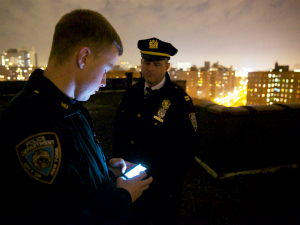Police Need a Warrant to Search Your Cell Phone
In 1973, the U.S Supreme Court held that police do not need a warrant to look inside a pack of cigarettes found in the pocket of a man who had been arrested. This decision was decided for the safety of an officer and to prevent concealment or destruction of evidence.
 Jump forty years later to 2014. In the case Riley v. California, the U.S Supreme Court unanimously ruled that the police need search warrants to search the cell phones of people they arrest. This decision was made to help define the Fourth Amendment, which affirms “the right of people to be secure in their persons, houses, papers, and effects from unreasonable searches and seizures” in absence of a warrant.
Jump forty years later to 2014. In the case Riley v. California, the U.S Supreme Court unanimously ruled that the police need search warrants to search the cell phones of people they arrest. This decision was made to help define the Fourth Amendment, which affirms “the right of people to be secure in their persons, houses, papers, and effects from unreasonable searches and seizures” in absence of a warrant.
This decision determined that a person’s cell phone contains more information than a person’s house. A person therefore has a “reasonable expectation of privacy” for the contents in their phone and police should not be able to search an arrestee’s cell phone without voluntary consent or a valid search warrant.
The U.S Supreme Court’s ruling makes total sense in regards to today’s high technology and the arrival of the smartphone. Nine out of ten adults in America own a cell phone and an average person has 33 apps installed. These apps contain email, pictures, bank records, intimate conversations, medical data, and GPS information.
Although officers can generally search any container within an arrestee’s car, a cell phone bears little resemblance to traditional containers. Allowing the police to freely search a person’s cell phone without a warrant would be a significant invasion of privacy, which is excessive and unreasonable under the Fourth Amendment.


Comments